Network Topologies
1/16
Earn XP
Description and Tags
Name | Mastery | Learn | Test | Matching | Spaced | Call with Kai |
|---|
No study sessions yet.
17 Terms

what are the five main types of network topologies?
Bus
Ring
Star
Hybrid
Mesh
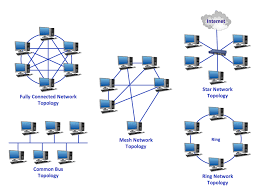

describe a bus topology
uses central cable called bus
all devices attached to bus
data travels along it in both directions
terminators at both ends


advantages of bus topology
simple install - easy to set up
cost effective - requires less cable


disadvantages of bus topology
slows down with more devices - too many cause congestion or network slowdowns
complex troubleshooting
network interference - if main cable fails, whole network stops working


describe a ring topology
each device is connected forming ring where data travels in one direction until it reaches its destination
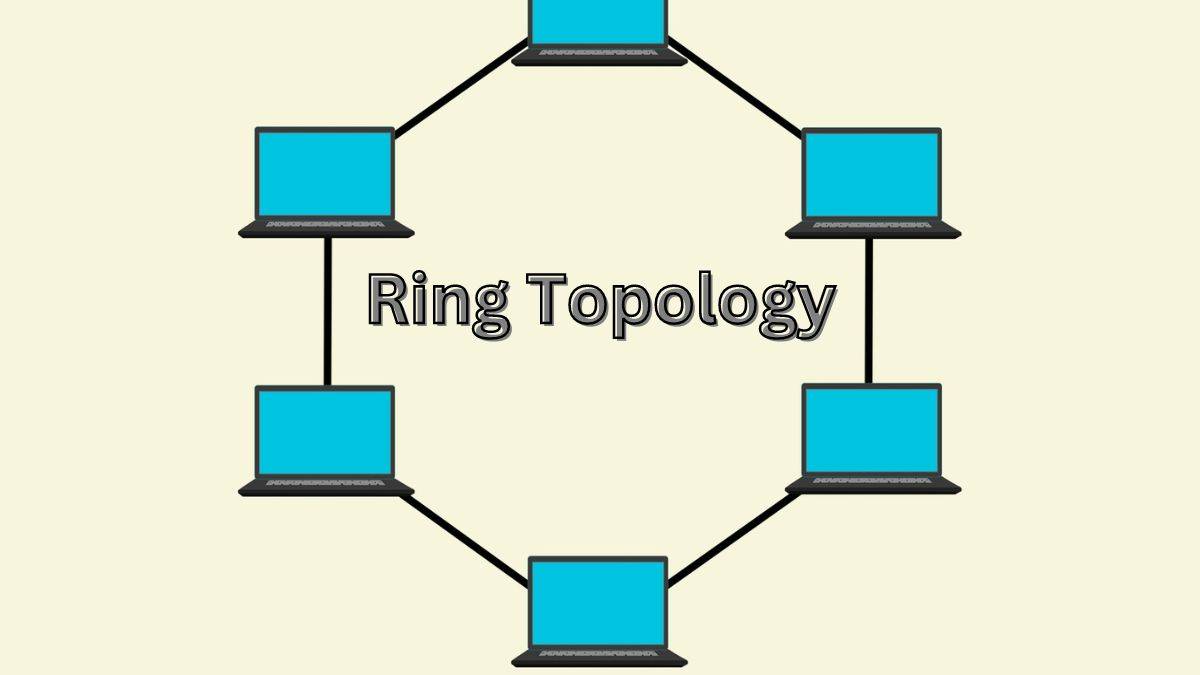
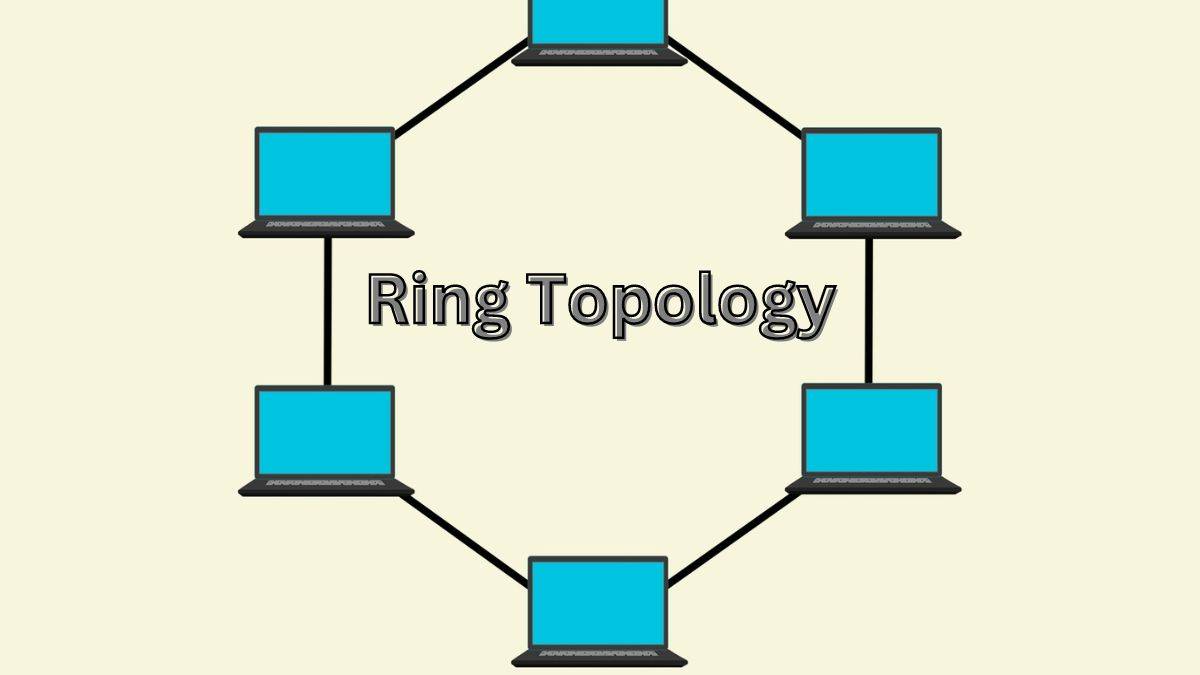
advantages of ring topology
no data collisions
simple install
better network management
cost effective

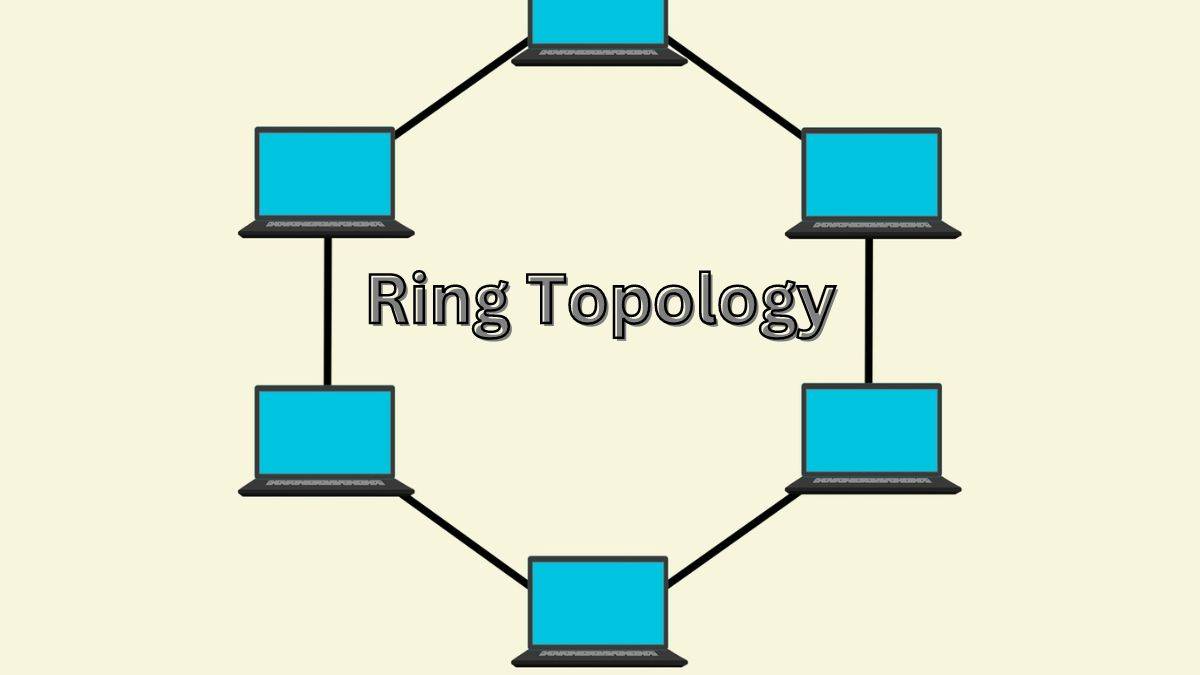
disadvantages of ring topology
slow data transfer
complex troubleshooting
one broken connection can bring down whole network


describe a star topology
connection where all devices are linked to central hub which manages communication
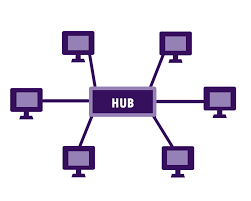
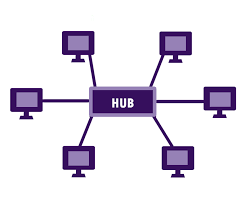
advantages of star topology
low error chance - if one computer fails, network keeps working
efficient speed
easy troubleshooting
reliability

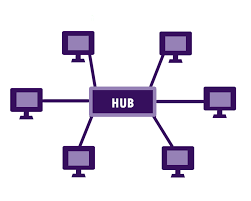
disadvantages of star topology
central hub failure
expensive installation - more cables needed


describe a hybrid topology
combination of two or more different network topologies to increase performance
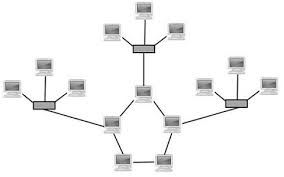
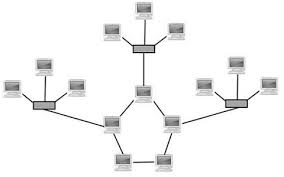
advantages of hybrid topology
flexible - able to add or take out nodes flexibly
reliable
handles traffic well

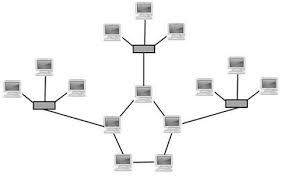
disadvantages of hybrid topology
high-cost install
complex maintenance
complex design


describe 2 types of mesh topology
FULL:
every device directly connected to every other device
PARTIAL:
some devices are connected to others, but not all
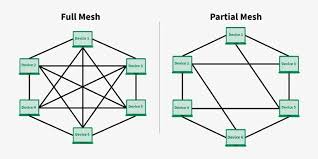

advantages of mesh topology
reliable - if one connection fails, data can take alternate route
less interconnected damage
efficient speed

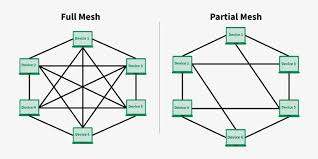
disadvantages of mesh topology
high-cost install
complex network management
difficult to maintain


factors that affect choice of network topology
CIFS SET
Cost (budget for setup and maintenance)
Installation (ease of setup)
Fault Tolerance & Reliability (how well handles failures)
Scalabilty (ability to expand)
Speed and Performance (how fast data travels)
Ease of Troubleshooting & Maintenance (how easy to fix issues)
Type of Organisation (small office, large company, etc.)
